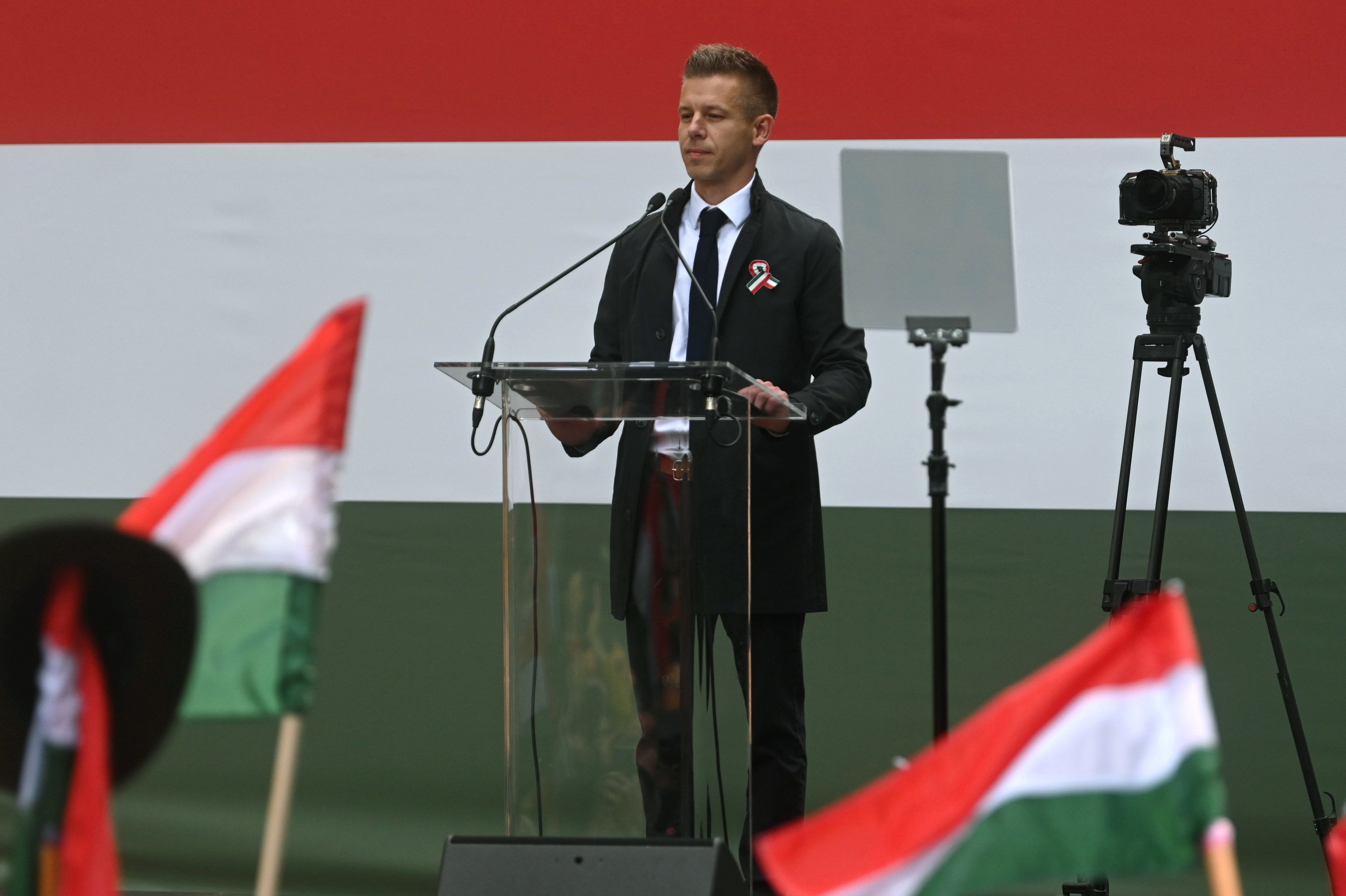Opposition sees ÁSz fines as politically motivated

Critics of the government have charged that investigations by the State Audit Office (ÁSz) into the funding of several opposition parties, and ensuing heavy fines, are a clear attempt to hinder their operations in the run-up to Aprilʼs general elections. They also note that neither Fidesz nor its Christian Democrat (KDNP) partner have been subject to such probes.
For several months, Hungarian polls measuring the popularity of political parties have invariably placed governing Fidesz at the top, with far-right opposition party Jobbik ranked second.
While the difference between the two is significant and growing, some political observers see signs that indicate attempts by Fidesz to discredit Jobbik. The most obvious of these might be the recent move by the State Audit Office (ÁSz) to slap Jobbik with a fine of HUF 331.66 million (more than EUR 1 mln) for a political advertising campaign it claims was illicitly funded, an amount that could spell the partyʼs bankruptcy, given that the same amount again is also set to be deducted from the partyʼs future state funding.
Close watchers of the government say the underlying cause of the conflict between Fidesz and Jobbik is not only the outcome of the elections on April 8 this year, but also an ongoing feud between the government and Lajos Simicska, a wealthy businessman once close to Fidesz and Prime Minister Viktor Orbán, now supporting Jobbik.
In brief, Simicska, once economic director of Fidesz and later head of the internal revenue service (APEH, now the National Tax and Customs Administration - NAV) during a former Fidesz administration, abruptly broke ties three years ago with Orbán.
Since then, Simicska has been openly supporting Jobbik, the strongest opposition party in the polls, including offering it space on billboards owned by his companies. Not for free, but, according to the findings of ÁSz, at below market price.
Not only that, but Jobbik finances in 2015 and 2016 were discovered by ÁSz to be insufficiently transparent. Combined, these triggered the substantial fine imposed on the party.
Since then, ÁSz has also discovered irregularities at other opposition parties and fined them also. However, no such investigations have been conducted in the case of Fidesz and KDNP, the governing coalition parties.
Observers worried by these moves, which they say are especially unusual in the run-up to an election, point to a number of concerns. One of these is that ÁSz is headed by László Domokos, who served as Fidesz’s deputy parliamentary group leader from 1998 to 2002, and as a Fidesz MP until 2010, when he resigned from political posts to take up his job at the audit office.
Lack of transparency
Party funding in general, and election spending in particular, has long been a concern in Hungary. The local branch of international watchdog Transparency International (TI) has repeatedly asked ÁSz to compare what the parties have declared as their spending during electoral campaigns with the costs that can be reasonably presumed based on media advertisements and other public communication.
ÁSz has hitherto invariably responded that the legislation does not allow this. It seems, however, that it now feels that it does - at least when it comes to investigating the oppositionʼs spending.
It is unclear how the HUF 331 mln fine against Jobbik, which cannot be appealed, has been calculated. According to Miklós Ligeti, the legal director of TI Hungary cited by online portal index.hu, no such fine has been imposed by ÁSz before. According to TI, while the upper spending limit for the 2014 electoral campaign was HUF 995 mln, it estimates that Fidesz-KDNP spent HUF 2.7 billion, but ÁSz has seen no reason to investigate this discrepancy more closely.
ÁSz has, however, investigated the spending of other smaller opposition parties (DK, LMP, and Együtt) and issued fines of between HUF 8.8 mln and HUF 16 mln.
None of the parties has a right to appeal against the decision of ÁSz. However, they have declared that they will not pay the fines. Csaba Molnár, vice president of DK, told news channel Hír TV (which, incidentally, has become increasingly critical of the government since its owner Simicska fell out with Fidesz) that the audit office said it fined the party because it was renting office spaces at cheaper than market price, but did not specify which offices.
"We are fined HUF 16 mln and not told what we have done wrong. We have no idea if this is an office in Budapest, Pécs or Szeged, if it is an office we just rented or have been renting for five years," Molnár said.
ÁSz continues to argue that it is only acting according to the law. A statement issued yesterday by the Ministry for National Economy says that Minister Mihály Varga has had talks with public administration offices and as a result, the opposition parties will be allowed a period of sixth months to prepare for paying the fines. This would take them through to after the elections, and theoretically means that parties would have funding available to contest the elections. The opposition parties, however, remain unimpressed.
Unconstitutional action?
In an op-ed published this week on current affairs website hvg.hu, economist Péter Róna, a professor at Blackfriars Hall of Oxford University, noted that ÁSz is merely a controlling entity and does not have the authority to take actions, nor to impose fines. It can merely notify Parliament of irregularities found, he said.
"The actions taken by ÁSz against opposition parties violate the separation of powers set down in the Constitution, so that the political sphere, that is, Parliament, through its ʼbodyʼ ÁSz, could take individual actions by circumventing justice and refusing the possibility of appeal. And this is the very dictatorship against which the separation of powers has been created," Róna said.
Viktor Szigetvári, the president of Együtt - which itself has been fined HUF 16 mln - described the fines as "a quick poison" as they must be paid within 15 days. If not, he added, NAV will withdraw the amount automatically from the accounts of the parties.
Electoral experts note that the fine does not necessarily mean the end of Jobbik, as it is expected to receive funds for its electoral campaign in the near future, totaling approximately HUF 800 mln. Hvg.hu asked ÁSz if it would be able to deduct the fine from this amount, but had received no answer at time of writing.
SUPPORT THE BUDAPEST BUSINESS JOURNAL
Producing journalism that is worthy of the name is a costly business. For 27 years, the publishers, editors and reporters of the Budapest Business Journal have striven to bring you business news that works, information that you can trust, that is factual, accurate and presented without fear or favor.
Newspaper organizations across the globe have struggled to find a business model that allows them to continue to excel, without compromising their ability to perform. Most recently, some have experimented with the idea of involving their most important stakeholders, their readers.
We would like to offer that same opportunity to our readers. We would like to invite you to help us deliver the quality business journalism you require. Hit our Support the BBJ button and you can choose the how much and how often you send us your contributions.








